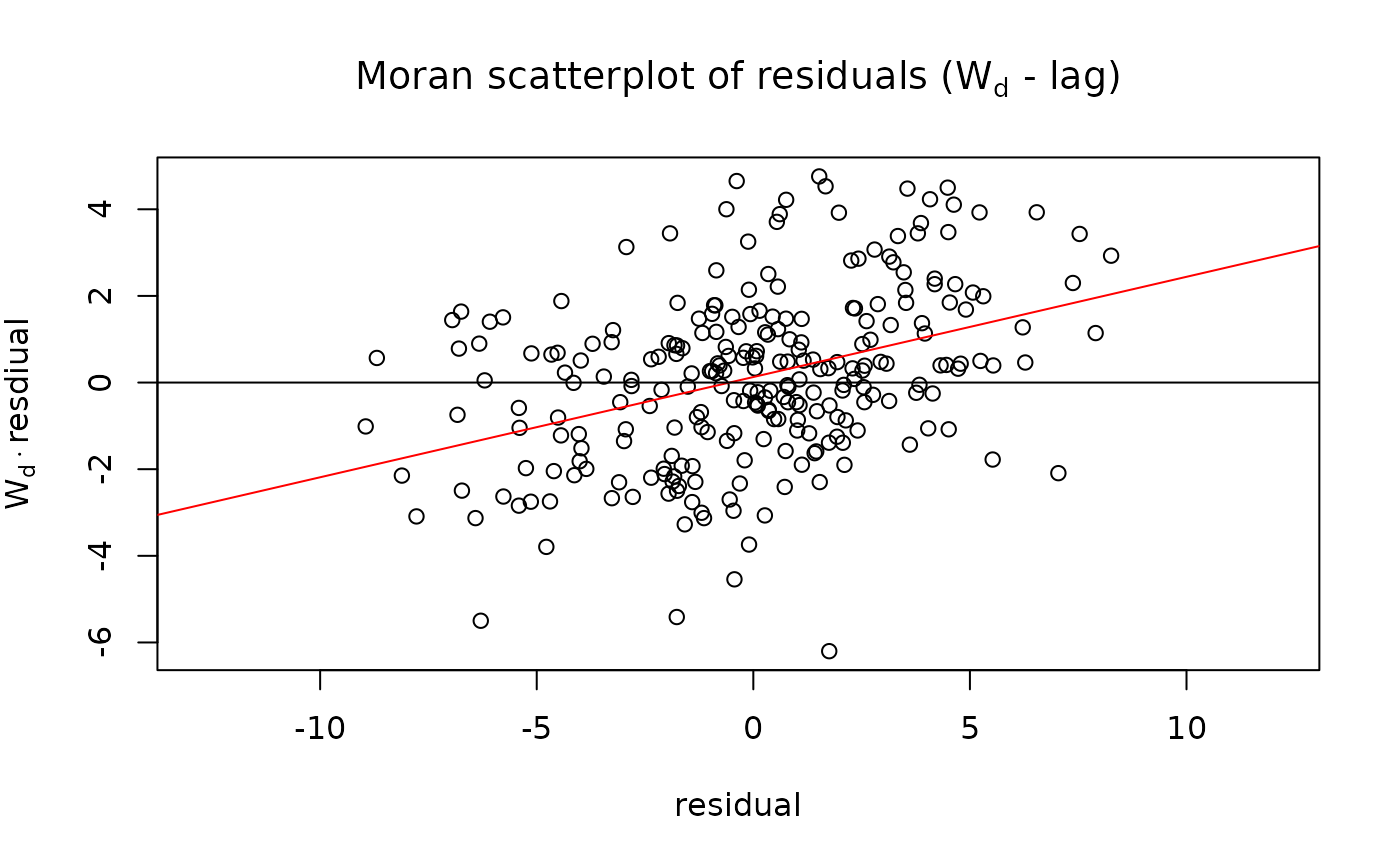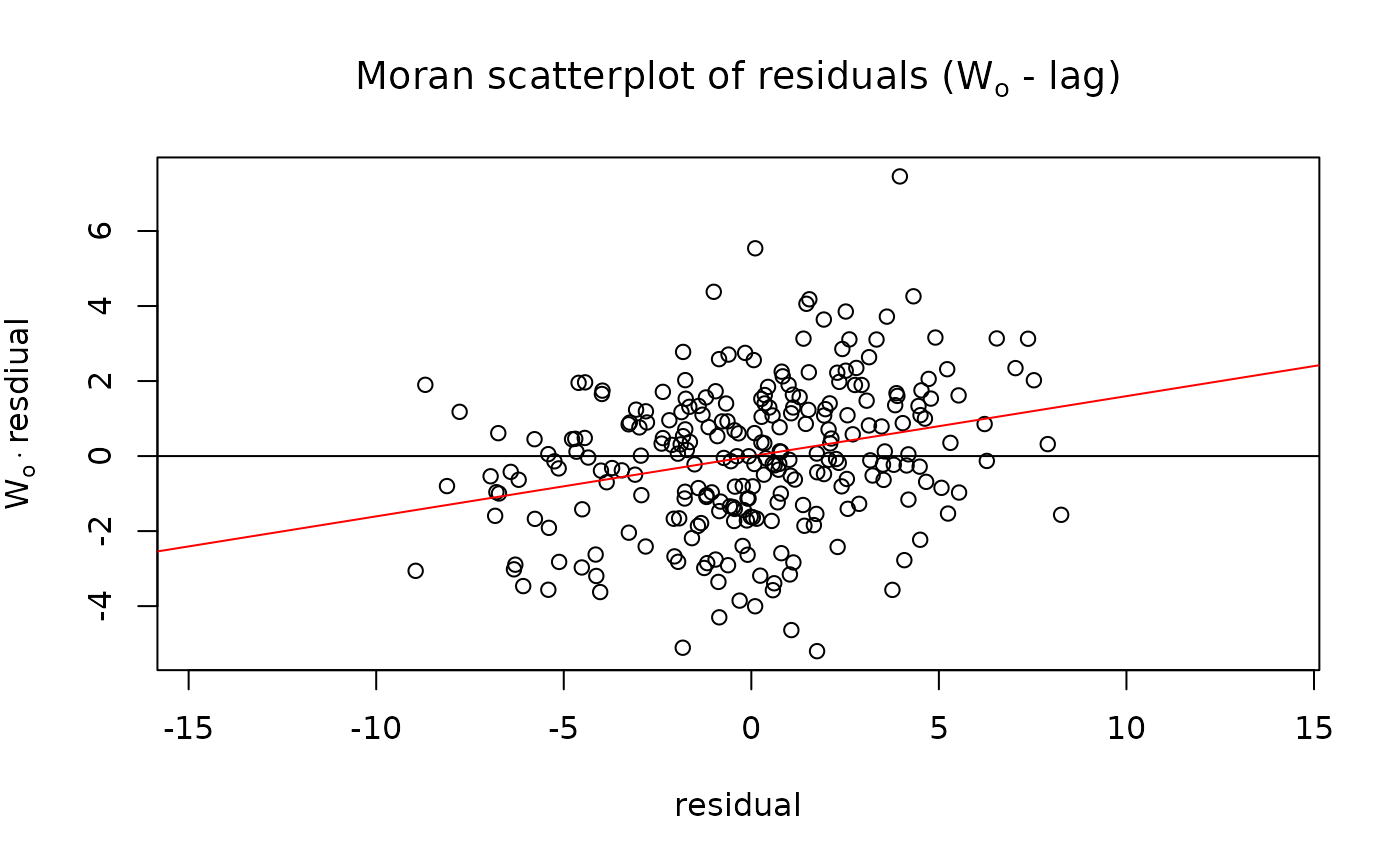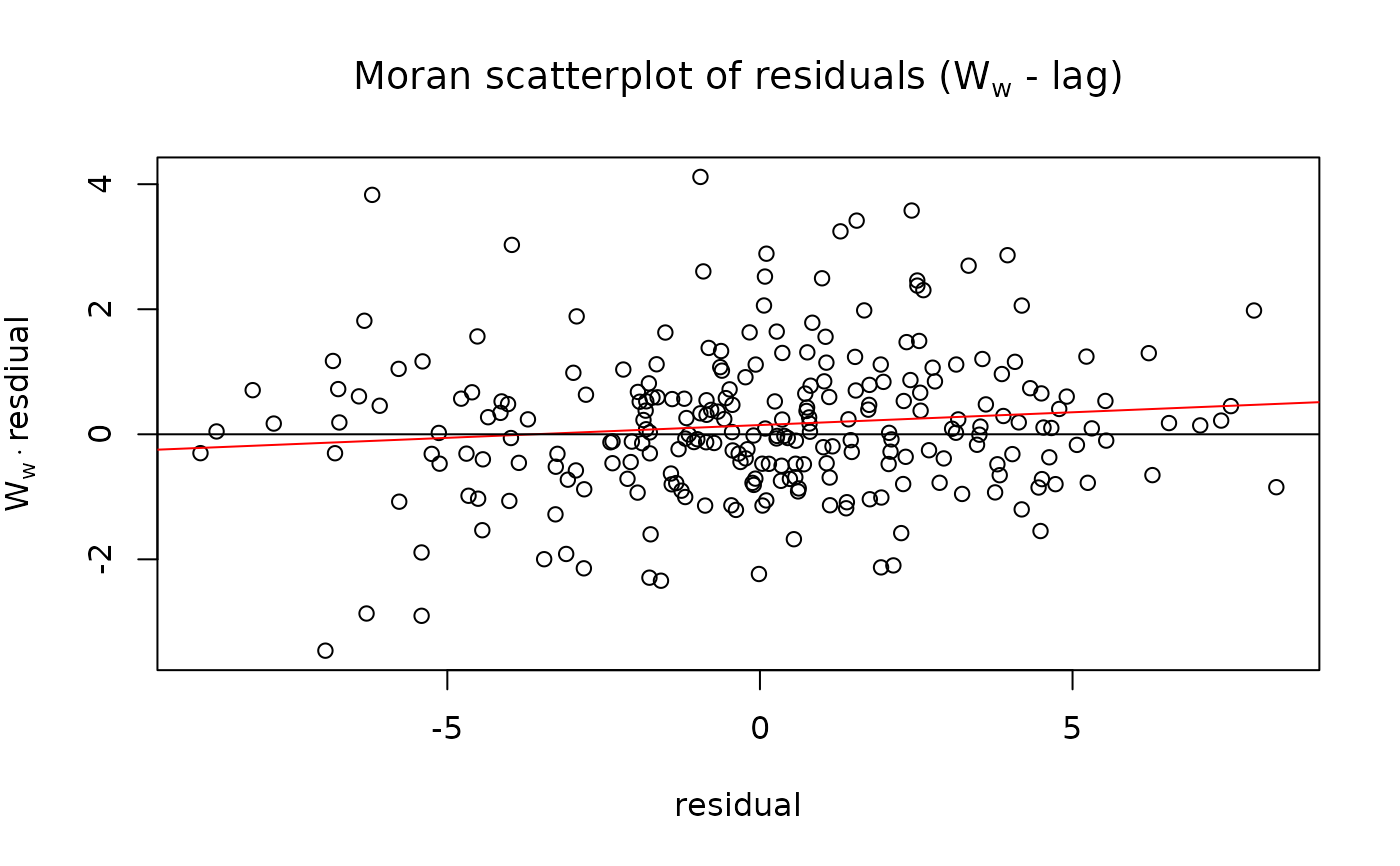Moran scatter plots of interaction data
Source:R/class_generics_and_maybes.R, R/class_spflow_network_multi.R, R/class_spflow_model.R
spflow_moran_plots.RdGenerate up to three Moran scatter plots, related to origin-, destination-, and origin-to-destination-dependence.
spflow_moran_plots(object, ...)
# S4 method for spflow_network_multi
spflow_moran_plots(
object,
id_net_pair = id(object)[["pairs"]][[1]],
flow_var,
model = "model_9",
DW,
OW,
add_lines = TRUE
)
# S4 method for spflow_model
spflow_moran_plots(object, model = "model_9", DW, OW, add_lines = TRUE)Arguments
- object
- ...
arguments passed to methods
- id_net_pair
A character indicating the id of a
spflow_network_pair()(only relevant if thespflow_network_multi()contains multiplespflow_network_pair-objects: defaults to the of them)- flow_var
A character, indicating one variable from the network pair data
- model
A character indicating the model number, that controls different spatial dependence structures should be one of
paste0("model_", 1:9). Details are given in the documentation ofspflow_control().- DW, OW
A matrix to replace the neighborhood of the destinations (DW) and origins (OW). Defaults to the one supplied to the model.
- add_lines
A logical, if
TRUEregression lines are added to the Moran scatter plots.
Examples
# Used with a spflow_network_multi ...
# To check the if there is spatial correlation in any variable
spflow_moran_plots(multi_net_usa_ge, "ge_ge",flow_var = "y9")
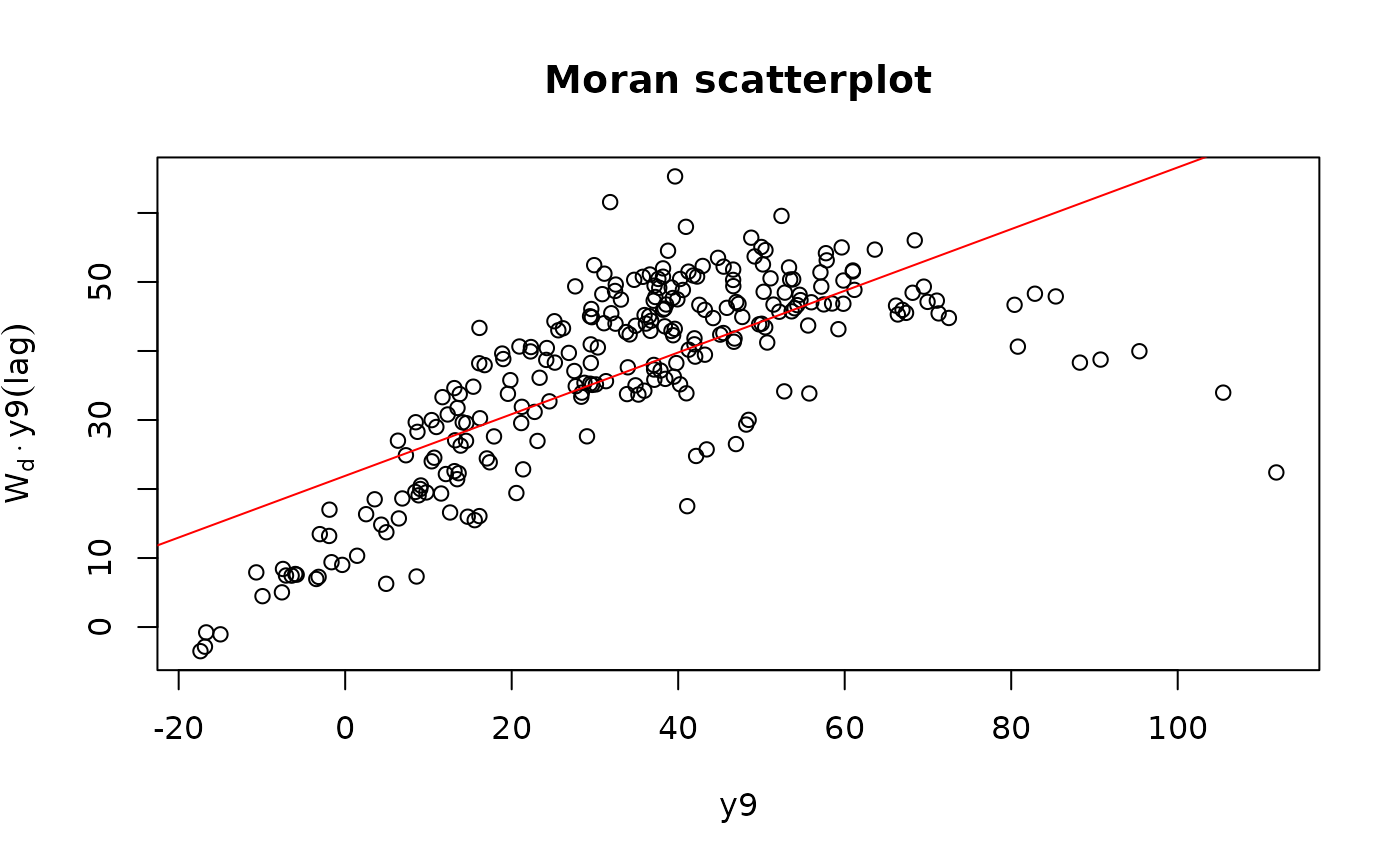
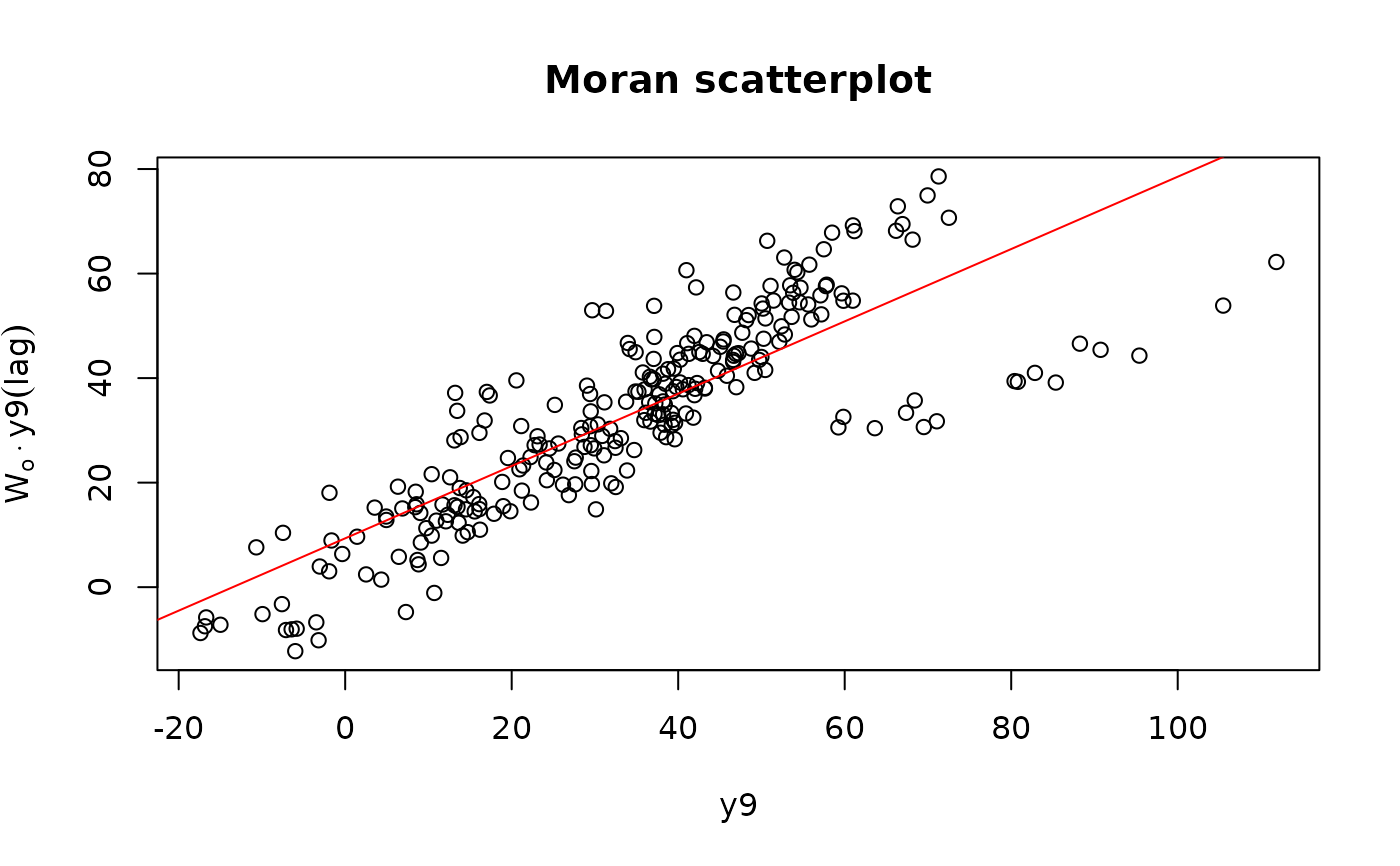
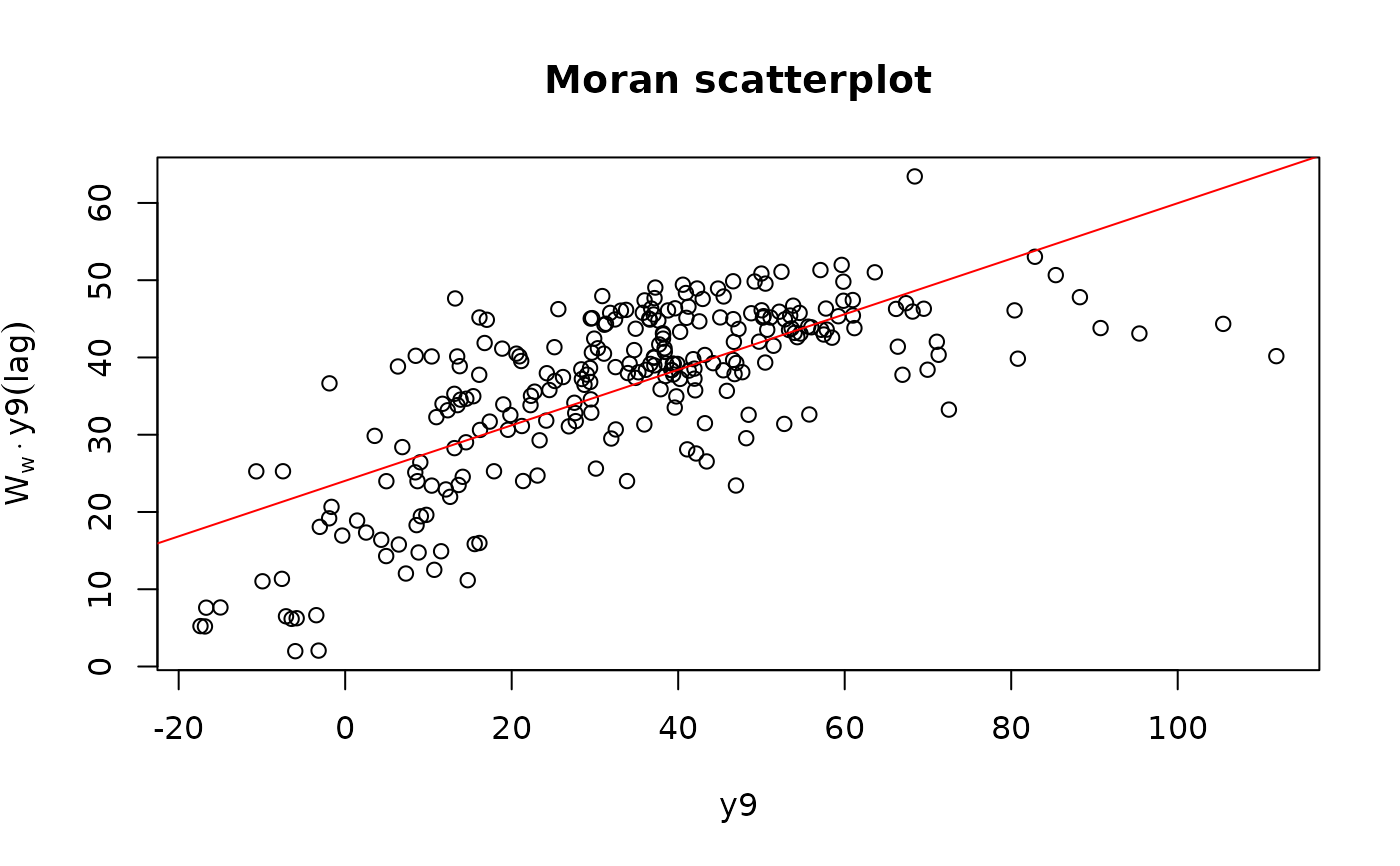 # Used with a spflow_model...
# Check the if there is spatial correlation in the residuals
gravity_ge <- spflow(
y9 ~ . + P_(DISTANCE),
multi_net_usa_ge,
"ge_ge",
spflow_control(model = "model_1"))
spflow_moran_plots(gravity_ge)
# Used with a spflow_model...
# Check the if there is spatial correlation in the residuals
gravity_ge <- spflow(
y9 ~ . + P_(DISTANCE),
multi_net_usa_ge,
"ge_ge",
spflow_control(model = "model_1"))
spflow_moran_plots(gravity_ge)
